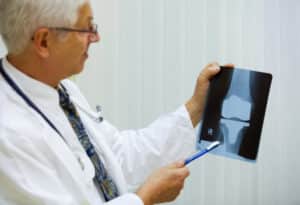
Femoral chondral defect 6: Surgery and early recovery
Over the past few weeks, I’ve been preparing for surgery on my left knee. So far, I’ve blogged about:
If you’re looking for someone to help you with post-operative physiotherapy, and need a therapist to make the best possible recovery, then look no further!
Get in contact
Just call my London team on
0207 175 0150 or use the form below and let me help you get better.
Just call my London team on 0207 175 0150 or use the form here.
If you’re considering having orthopaedic surgery – such as a hip replacement, a knee replacement, a ligament reconstruction or a bunionectomy – then don’t just look for a great surgeon, please also look for a great physio! It doesn’t matter how fantastic the surgery is if you don’t use and reintegrate the operated joint really well afterwards, and that takes a physiotherapist with the skills to respond to your specific issues, and not just follow a surgical protocol.
I work with a lot of London’s top sports doctors and orthopaedic surgeons, who trust me to help their most complex patients make the best possible recovery – whatever that means to the individual.
To book an initial assessment simply call my team on 0207 175 0150
Follow-up sessions if required are usually an hour – it’s important to me to be very thorough, as I want to be the last physiotherapist you need.
Where possible, I prefer to provide pre-operative physiotherapy as well as post-op.
For me, the goal of pre-operative physiotherapy is twofold:
Of course this is not always going to be possible, especially if your surgery is unplanned and the result of trauma; but fortunately, many people who have trauma surgery do not have the prior issues of muscle weakness and joint stiffness that characterise patients who are undergoing elective surgery.
The current COVID-19 restrictions do not permit me to be physically present (though many surgeons are proving to be happy for me to join you in clinic via Zoom or FaceTime) but where possible, I also like to join you and your surgeon, both in clinic and in theatre. There are many reasons I do this, which I have explored more fully in this blog post but essentially, the more information I have, the better job I can do for my patients. And in turn, the effort I put into collaborating with my surgical colleagues plays a big part in why they trust me to look after their patients: my physiotherapy efforts optimise the results of their surgery.
As a leading Post Operative Physiotherapist in London, I regularly write about injuries, treatment and assessment techniques.

Over the past few weeks, I’ve been preparing for surgery on my left knee. So far, I’ve blogged about:

The backstory… In October 2022, I was playing a routine tennis match when my knee went *crunch*. This is

Having a knee replacement ks a big decision! So what can you do to ensure that your knee replacement surgery goes as well as possible?
Simply fill in the form and my team will call you
Quick Links
Address
Longcroft House
2-8 Victoria Ave
London
EC2M 4NS